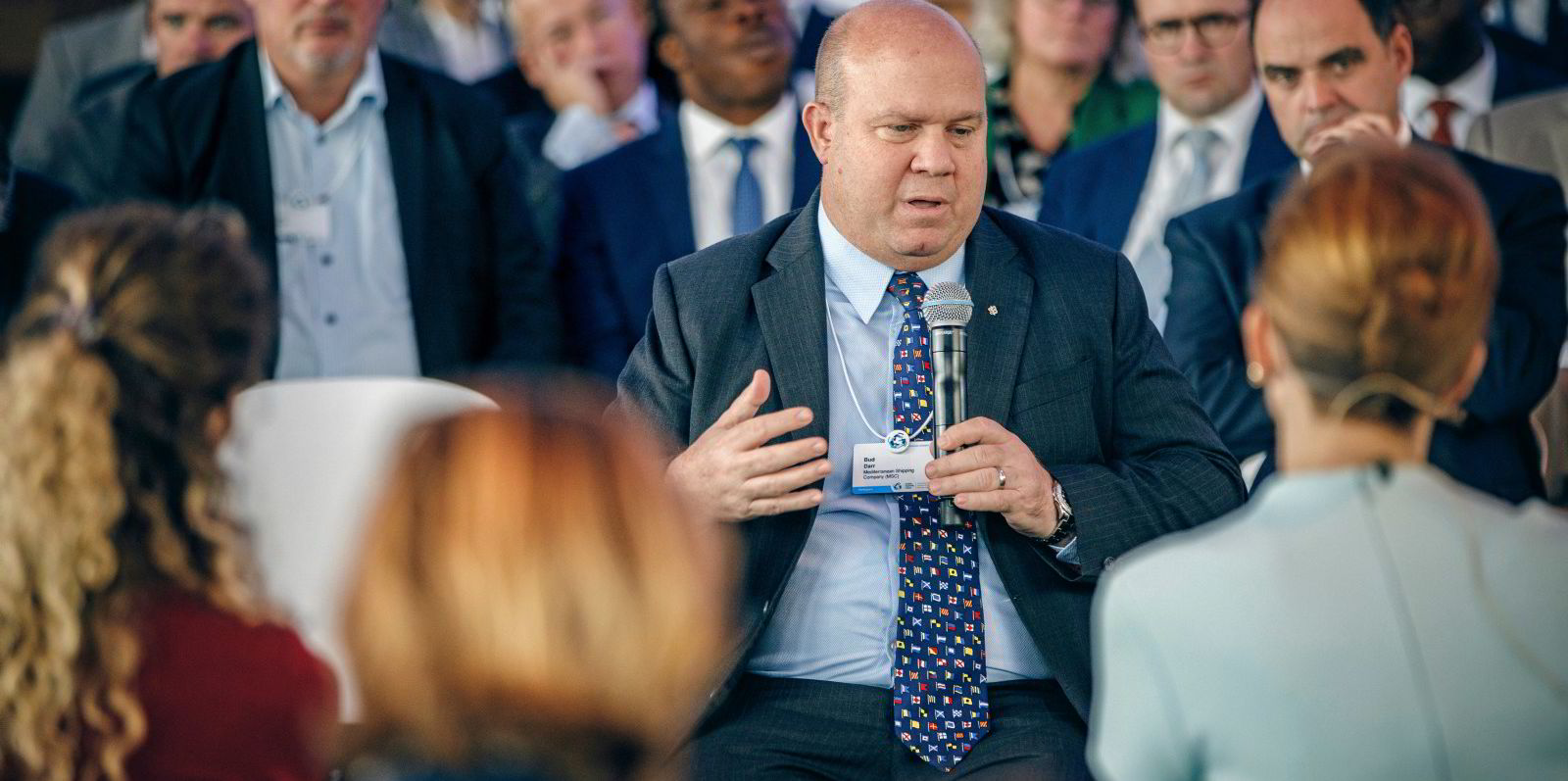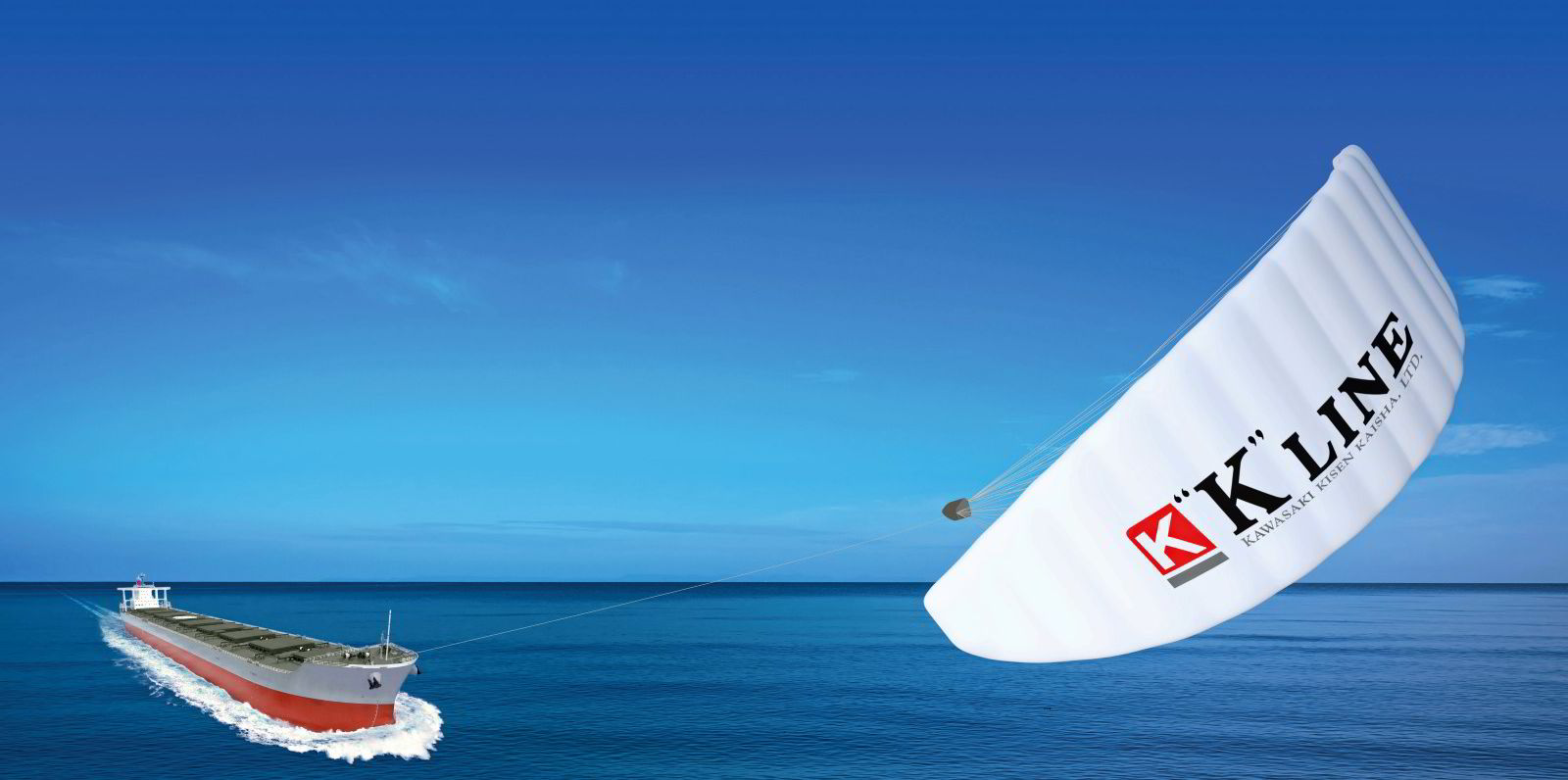Today’s energy crisis should not stop the path to decarbonisation, Trafigura global head of wet freight Andrea Olivi said.
“Decarbonisation is an ultramarathon and not a sprint, but it is very important that we don’t stop,” he told a Capital Link conference session moderated by DNV special ships segment director Arnstein Eknes.
Olivi said decarbonisation is at the top of Trafigura’s agenda.
He said it has changed the group’s “modus operandi” both in terms of investing in hardware and software, and the hiring of talent.
“We are doing this because we want to be at the forefront of the maritime decarbonisation revolution. We want to be champions of this revolution.”
Olivi said over the past 18 months Trafigura has been investing in modern vessels, which it has taken on long-term time charter.
He said on a weekly basis the company looks at retrofitting energy-saving devices on ships.

The freight head said the move to decarbonise is bringing the company closer to some of its shipowners and stressed the need for collaboration across many industry players.
Tufton Investment Management chief information officer Paulo Almeida said his company has also been focused on energy savings on vessels for the past 18 months.
By mid-2023, he said around half the company’s ships will have been fitted with devices, leading to fuel savings of 10% to 15%.
Dorian LPG USA chief executive John Lycouris said it is a personal “frustration” that it is not yet possible to build or design carbon-free ships. But said it is important for all stakeholders to work together as there is no one solution.
He listed most of the alternatives for marine as transition fuels, including ammonia.
Ultimately, he said hydrogen is probably the best solution, although it is not there yet, and highlighted that fuel cells and small nuclear reactors are also being discussed for the shipping industry.
“We see a lot of opportunities in the future,” Lycouris said. “Right now we will try to do the best with what we can,” adding that this could be transitioning to a better fuel before deciding what to do in 2030.
Olivi said at the moment Trafigura believes the “champions of the future” will be hydrogen-based fuels and in particular ammonia. But he added that the company is evaluating all opportunities
During the discussion, he acknowledged that NOx will be a key hurdle for ammonia being used in diesel engines.
Olivi said the company is starting to see a great mix of propulsion systems for vessels, which all have very different economics. He said as a charterer Trafigura must “look for the best”.
‘Uncertain future’
“Shipping has always been about betting on an uncertain future,” said Purus Maritime senior board advisor Richard Sadler, “and now I don’t think we are just betting on an uncertain commercial future but we are betting on … a really uncertain technological and regulatory future as well.”
Sadler said if there was a carbon tax that everyone understood then it would be easier for charterers to make decisions and ensure everyone was operating on an equal footing. But he warned against unnecessary duplication and bureaucracy for the shipowner in carbon reporting.
Olivi said a tax on CO2 is “absolutely vital” as aligning incentives to decarbonise with profitability would make it easier to decarbonise the industry.
He said it is also needed to create a legal framework for people to invest in technologies and incentives for companies to be first movers.





